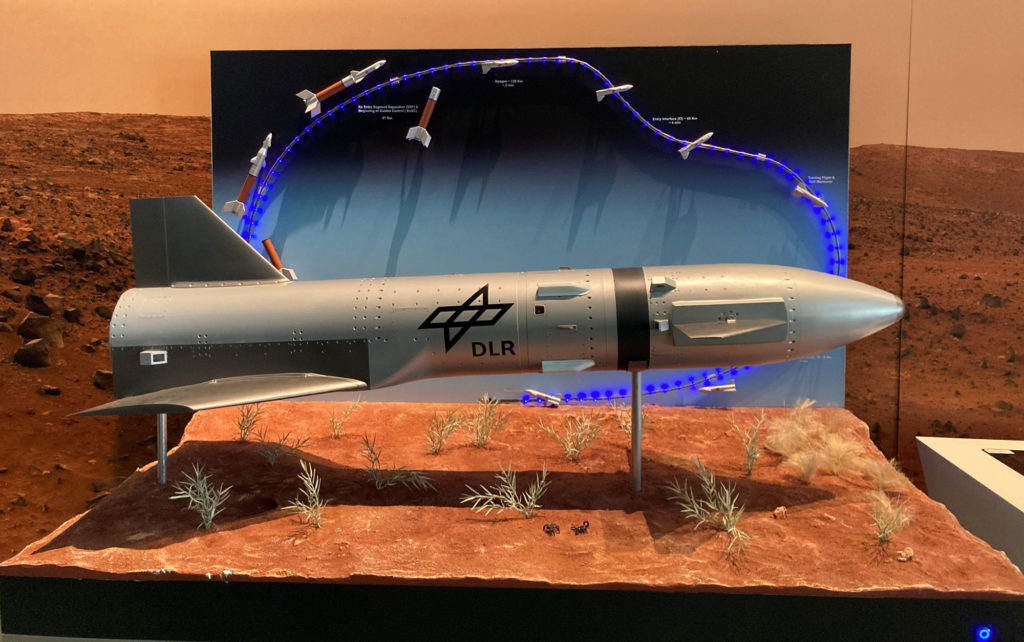Reusability Flight Experiment
The Reusability Flight Experiment (ReFEx) is being developed by DLR to provide flight and design data on, as well as operational experience with aerodynamically controlled Reusable Launch Vehicle (RLV) stages. ReFEx will act as a small technology demonstrator and is scheduled for launch in 2024 from the Koonibba Test Range in South Australia. The experiment will be launched on a VSB-30 sounding rocket, reaching altitudes and velocities similar to an aerodynamically controlled first stage. This will be followed by a return flight on a trajectory comparable to a returning winged first stage RLV, transitioning from hypersonic speeds down to subsonic flight.
ReFEx has a length of 2.7 metres, a wingspan of about 1.1 metres and has a mass of approximately 450 kilograms. Outside the atmosphere, it will be controlled by a cold gas reaction system and then transition to aerodynamic control surfaces (canards and rudder) when atmospheric effects become available. The maximum Mach number reached during the re-entry manoeuvre will be approximately Mach five. In addition to being able to fly an optimised trajectory (generated autonomously on board) to reduce the thermal and mechanical loads, ReFEx will demonstrate high manoeuvrability by flying a turn of at least 30 degrees with respect to the original heading. This capability will allow future RLVs to react on demand to dynamic situations on the ground (for example, a blocked runway) and redirect to an alternative landing site while in flight.
Link:
German Aerospace Center (DLR)
Institute of Space Systems
Peter Rickmers · Email peter.rickmers@dlr.de
